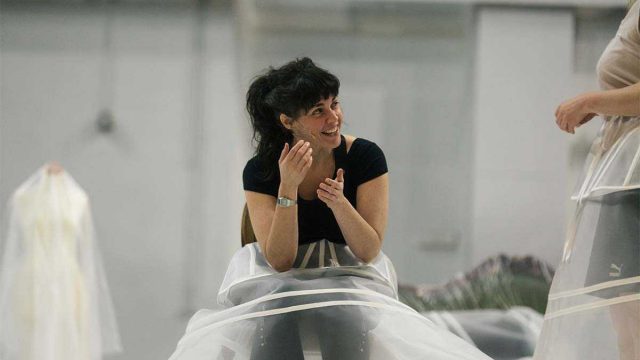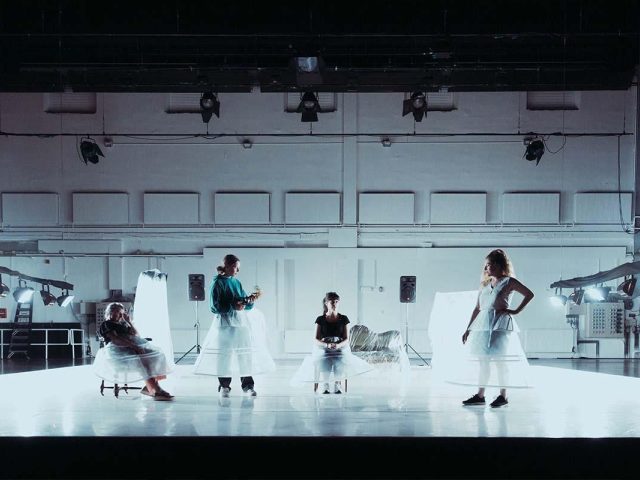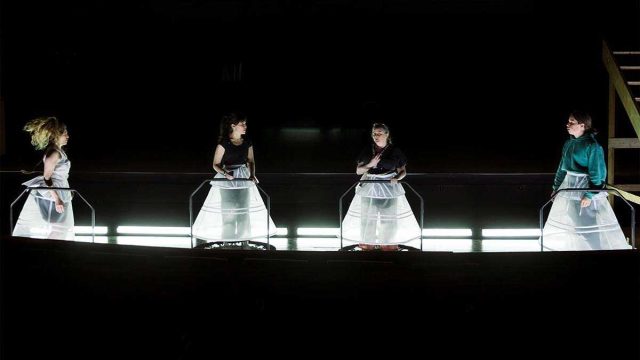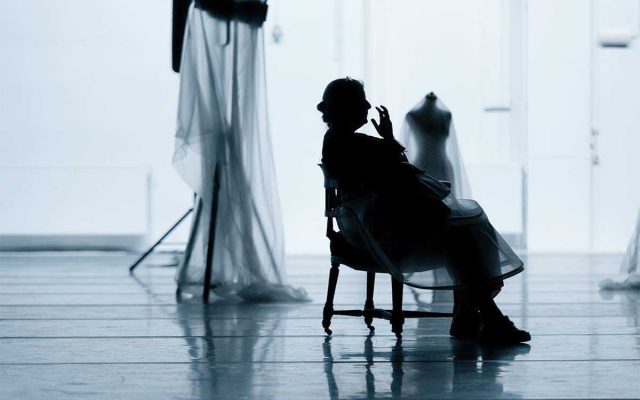KATHERINA LINDEKENS: Why did you choose Mimì as a source of inspiration for SOLA SOLETTA?
You play and sing in SOLA SOLETTA, and at the same time it is your first own performance. How do you like this new role?
MARIBETH DIGGLE: The realisation that I am not only a performer but also a maker came rather late. When I moved to Germany after my studies to work in the opera circuit, I was quite unhappy about it. While replacing one sick soprano after another, I couldn't shake off the impression that ten others could do the same in my place. I felt interchangeable, there was little room for creative input. I often ended up in hierarchical constellations where authoritarian directors ruled the roost. That model was strange to me, as I had previously gained experience in contemporary dance. There, it is obvious that performers are also creative partners, who feed the project with their own individuality. Gradually, I realised that I wanted to return to that basis. I think it is crucial to shape the performance in dialogue with the other performers and with the whole team. Everyone's contribution counts for me. La bohème is one of the most beautiful works in the history of opera, but I have always found the character of Mimì problematic. We know very little about her. Why is she called Mimì when her real name is Lucia? Who is she when she is alone, sola, in her room? She makes flowers, but would never call herself an artist - unlike the male characters, who boast titles like poet or philosopher. Today, this rather poor representation of women and their potential is increasingly being questioned. In our performance, we ask ourselves what the consequences of that image might be, both behind the scenes of the opera industry and in the outside world. It is high time to show more women who are leaders and heroes, who can save themselves. For all these reasons, I wanted to reinvent Mimì.



